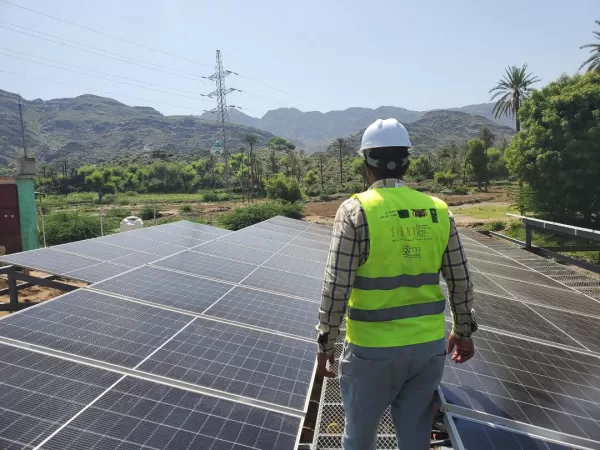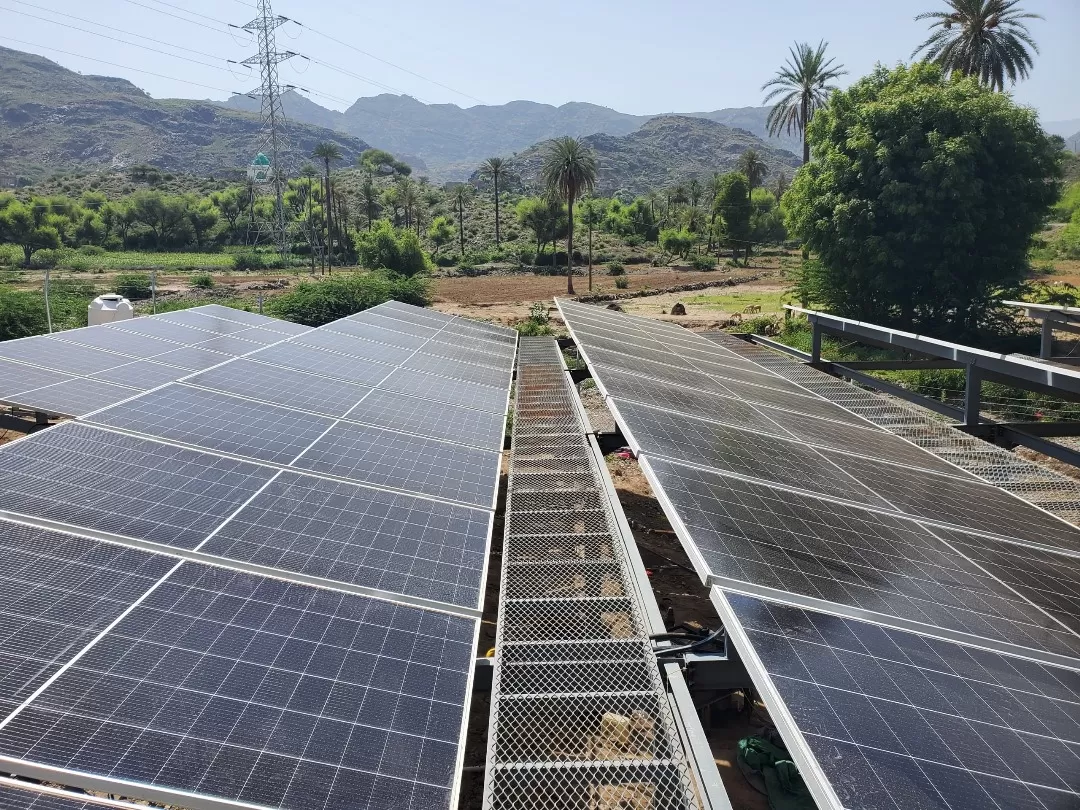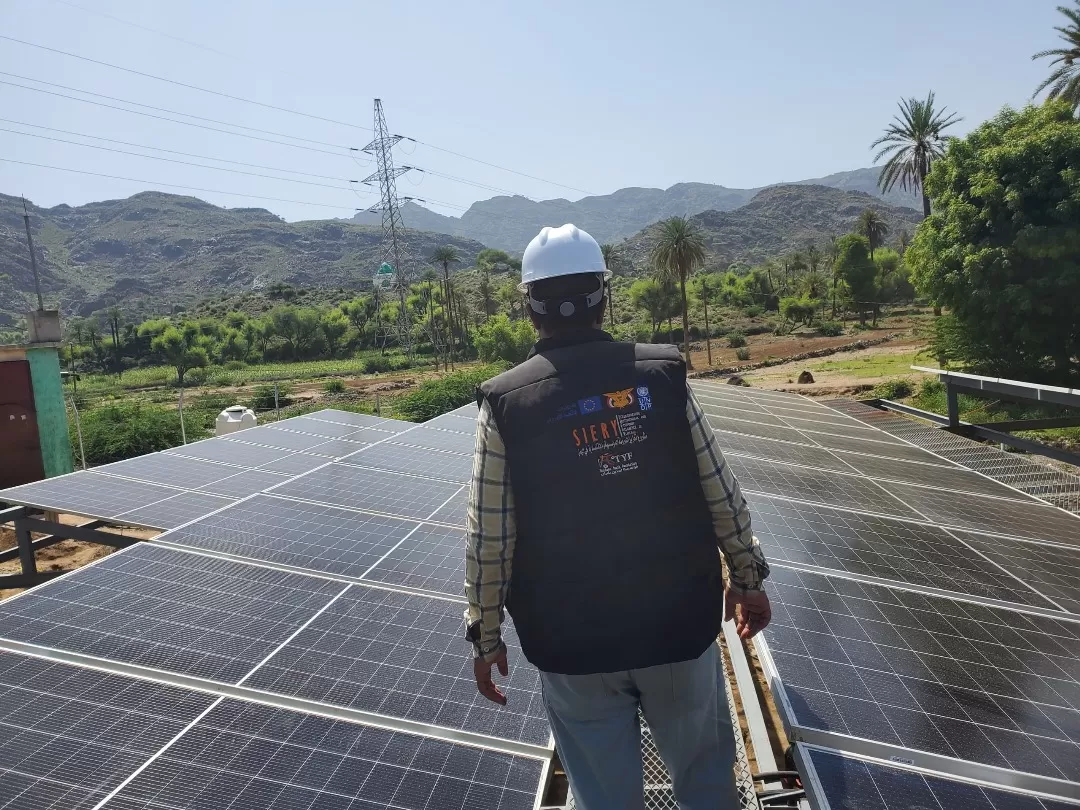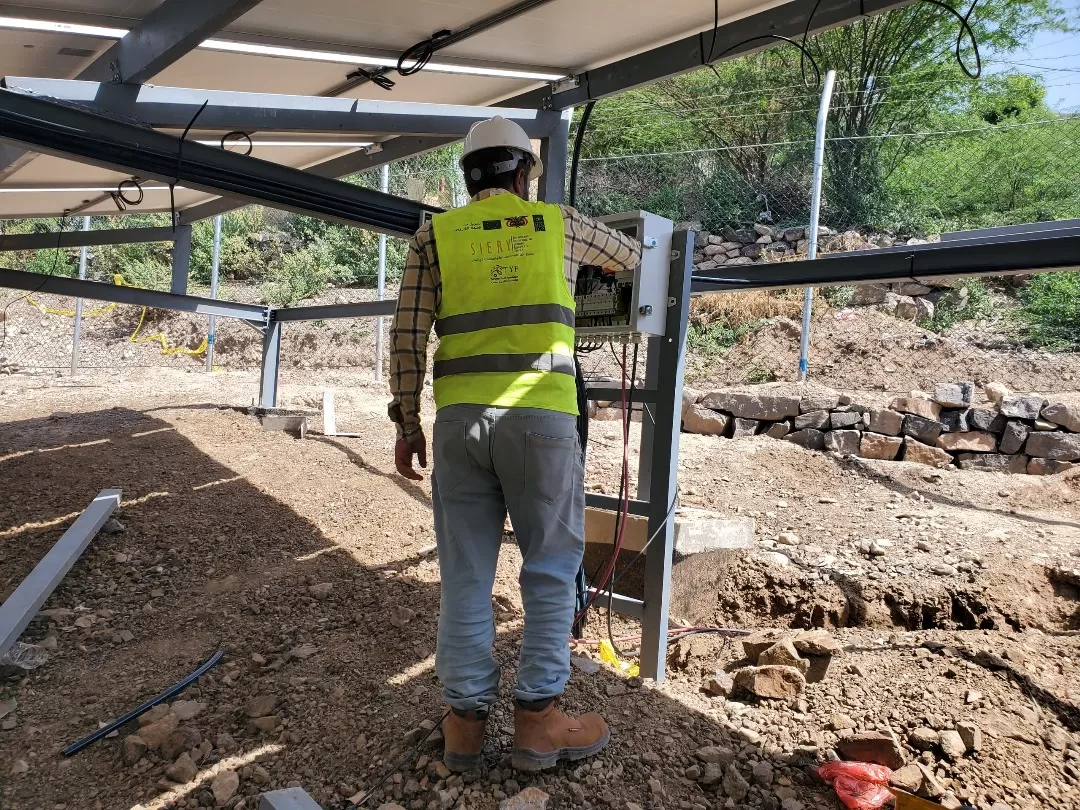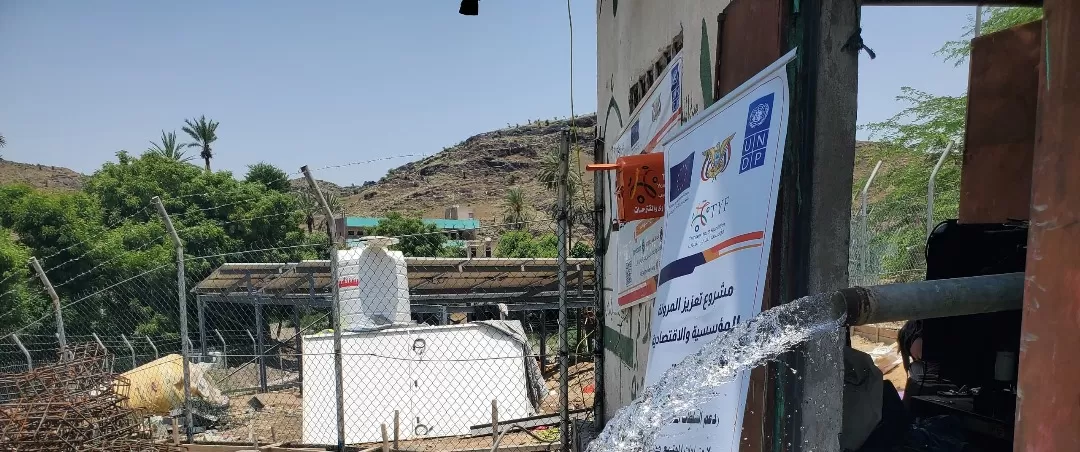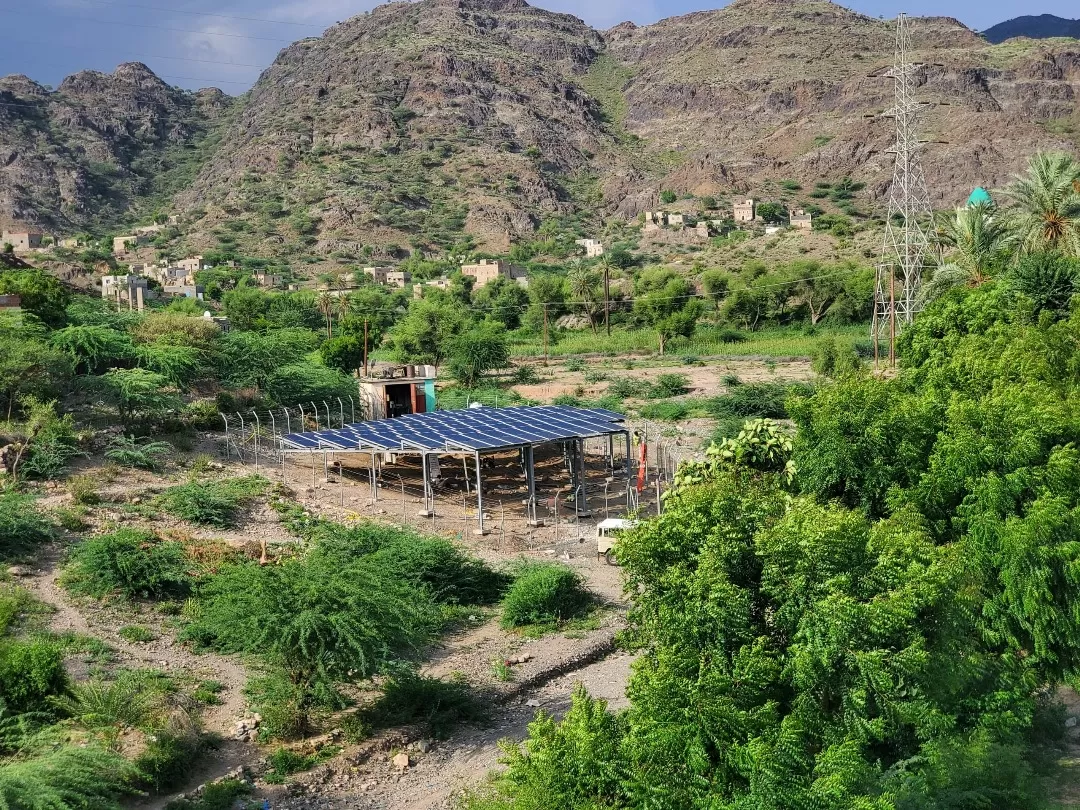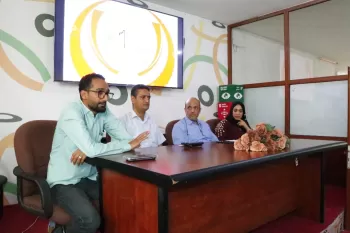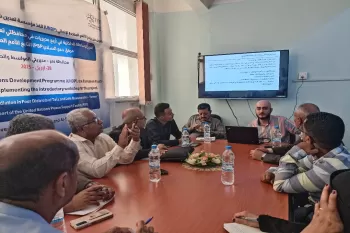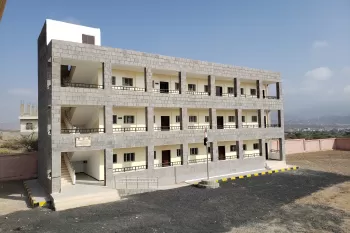The local authority in Taiz governorate, with the support of the SIERY project, provides solar-powered drinking water to residents of four villages in Maqbana district
The local authority in Taiz governorate, with the support of the SIERY project, succeeded in implementing a vital project to provide safe drinking water to the people of four villages in the Bani Salah neighbourhood in Maqbana district
5,700 people in the villages of Khurayja, Melhem, Al-Mashawz and Al-Makhraba relied on a community water project powered by a diesel engine, but with the increase in fuel prices in Yemen, it became difficult for the community to afford diesel fuel, which led to frequent interruptions in pumping and exacerbated the water shortage issue.
This need was prioritised in the local authority's plan to prepare a proposal to replace the diesel pumping engine with a solar energy system to meet the population's drinking water supply needs and provide a solution that reduces operational costs and preserves the environment.
Through the "Strengthening Institutional and Economic Resilience in Yemen" (SIERY) project funded by the European Union Delegation in Yemen and affiliated with the United Nations Development Programme (UNDP), the local authority in Maqbana district received technical support and funding through the Tamdeen Youth Foundation (TYF) to implement the project.
The diesel engine was replaced with a 55-kilowatt integrated solar power system, a retaining wall was built to protect the system from flood risks, and the community committee was trained to operate and maintain the system and manage the project.
Switching to solar energy not only reduced operational costs, but also mitigated the environmental impact caused by the previous diesel generator, and ensured the sustainability of the project in providing safe drinking water to the people of these villages through renewable energy sources.
The SIRY project has strengthened the capacity of local authorities to respond to community needs and improve the quality of public services in an integrated, participatory, gender-sensitive and environmentally sustainable manner.

